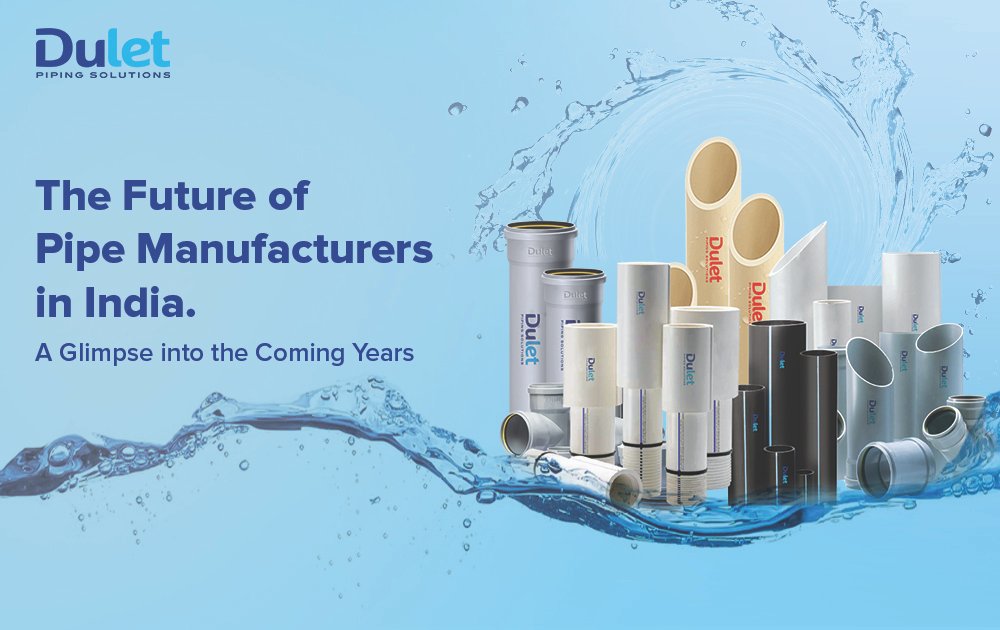Introduction of Pipe Manufacturers in India
The pipe manufacturing company plays a crucial role in various sectors, including construction, infrastructure development, oil and gas, and many more. As technology advances and global trends continue to shape our world, it’s essential to anticipate the future of pipe manufacturers. In this blog, we will delve into the potential developments and advancements that may impact the pipe manufacturing company over the next few years.
- Technological Innovations: The pipe manufacturing company has seen significant technological advancements in recent years, and this trend is expected to continue over the next coming year. With the rise of Industry 4.0 and automation, pipe manufacturers are likely to adopt cutting-edge technologies such as artificial intelligence (AI), machine learning, and robotics. These technologies can enhance productivity, improve quality control, and streamline production processes.
AI-powered systems can analyze data collected from sensors and predict maintenance needs, optimizing equipment performance and reducing downtime. Machine learning algorithms can assist in identifying defects and anomalies during the manufacturing process, ensuring that only high-quality pipes are produced. Robotic automation may also play a larger role, enabling precise and efficient pipe fabrication and assembly.
- Sustainable and Eco-Friendly Practices: In recent years, sustainability has become a significant focus across industries, and pipe manufacturers are expected to embrace more sustainable practices in response to increasing environmental concerns. This shift will involve adopting eco-friendly materials, optimizing energy consumption, and reducing waste throughout the manufacturing process.
Incorporating recycled materials, such as post-consumer plastics or steel, into pipe production can significantly reduce the environmental impact. Additionally, manufacturers may explore alternative energy sources like solar or wind power to reduce their carbon footprint. Innovative recycling and waste management techniques can further enhance sustainability efforts within the industry.
- Embracing Digitalization and IoT: The digital revolution continues to transform industries worldwide, and pipe manufacturing is no exception. The Implementation of Internet of Things (IoT) devices and digitalization can revolutionize how pipe manufacturers operate.
IoT sensors embedded in pipes can provide real-time data on temperature, pressure, and structural integrity, enabling predictive maintenance and preventing potential failures. This data-driven approach can optimize production processes, reduce costs, and enhance overall product quality. Furthermore, digitalization can streamline supply chain management, inventory tracking, and customer relationship management, improving efficiency and customer satisfaction.
- Market Expansion and Globalization: The pipe manufacturing company is becoming increasingly globalised, with expanding markets and rising demand from emerging economies. Over the next year, pipe manufacturers are likely to explore new geographic regions and expand their market presence.
As infrastructure development and urbanization continue to accelerate worldwide, the demand for pipes for water supply, wastewater management, and transportation networks is expected to rise. The pipe manufacturing company that can adapt to different regional requirements and regulations, while maintaining quality standards, will have a competitive advantage in these expanding markets.
- Focus on Quality Assurance and Compliance: Ensuring product quality and compliance with industry standards and regulations will remain a top priority for pipe manufacturing company in the coming year. Quality assurance measures, including rigorous testing protocols and certifications, will be critical to meeting customer expectations and maintaining industry credibility.
Manufacturers may invest in advanced inspection techniques, such as Non-Destructive Testing (NDT) methods, to identify defects or weaknesses in pipes without compromising their structural integrity. Compliance with international standards and certifications will be essential for manufacturers targeting global markets, as it builds confidence in customers and enhances market access.
Conclusion
The future of pipe manufacturing company is poised for exciting advancements, driven by technological innovations, sustainable practices, digitalization, and market expansion. With the adoption of AI, machine learning, and robotics, pipe manufacturers can enhance productivity and quality control. Sustainability initiatives, digitalization, and IoT integration will further optimise operations, reduce environmental impact, and enable


